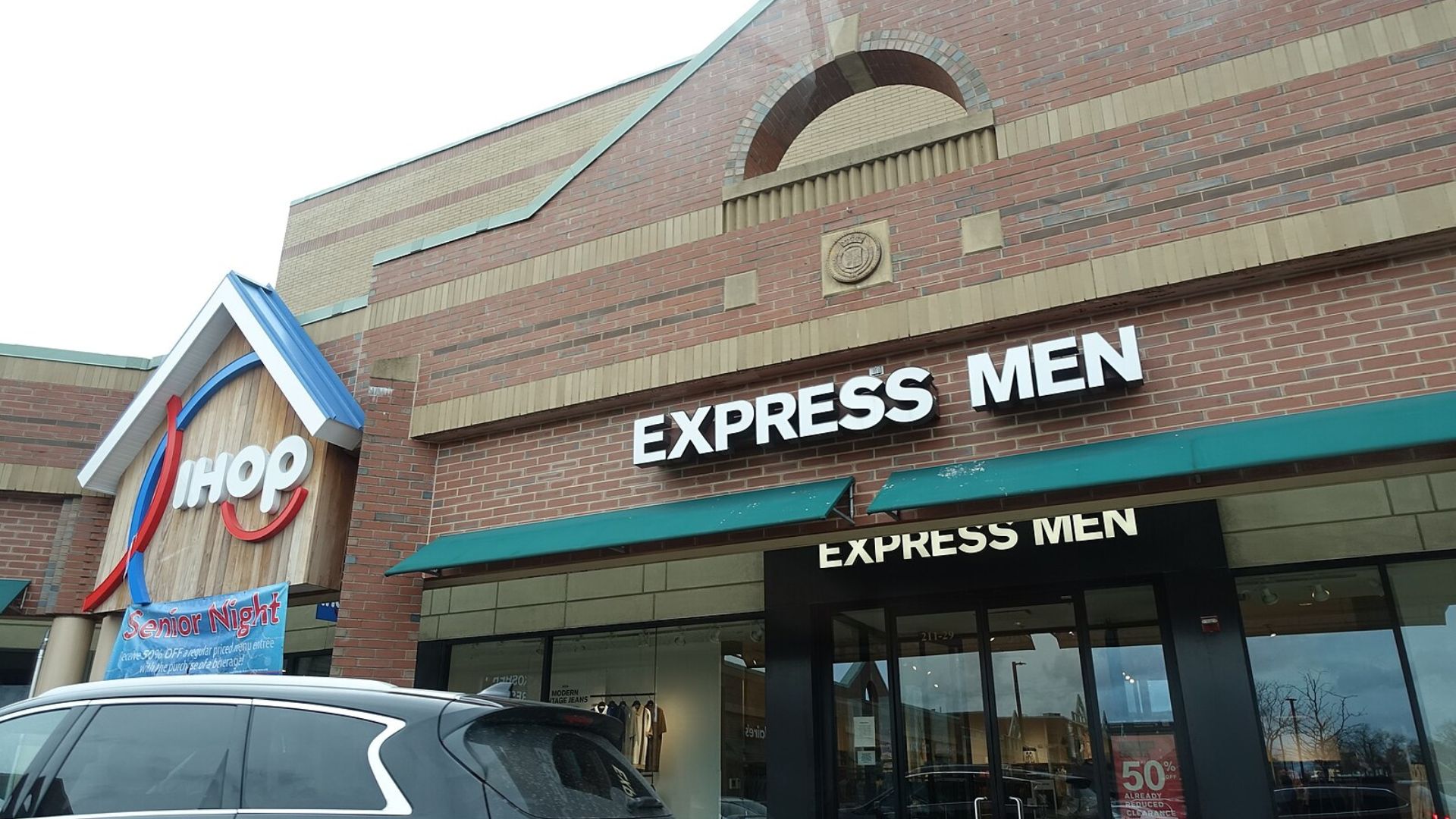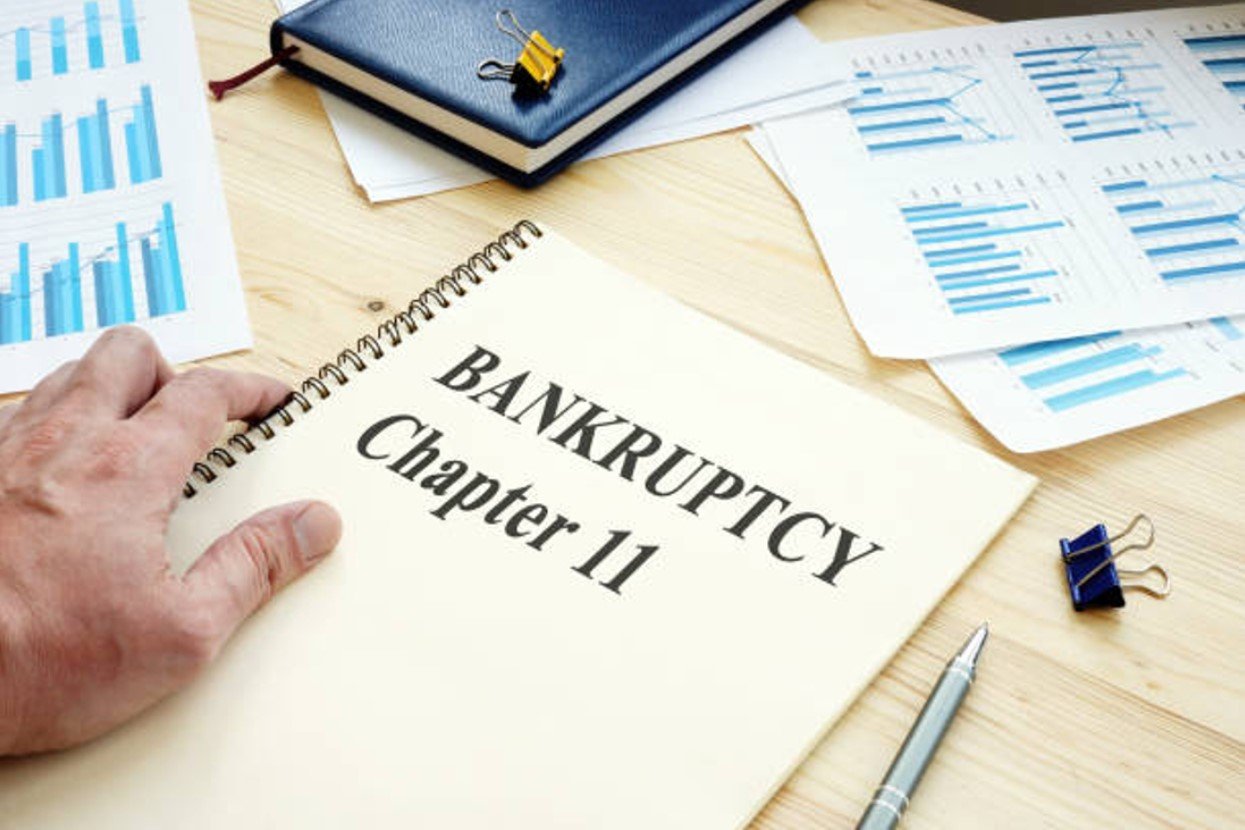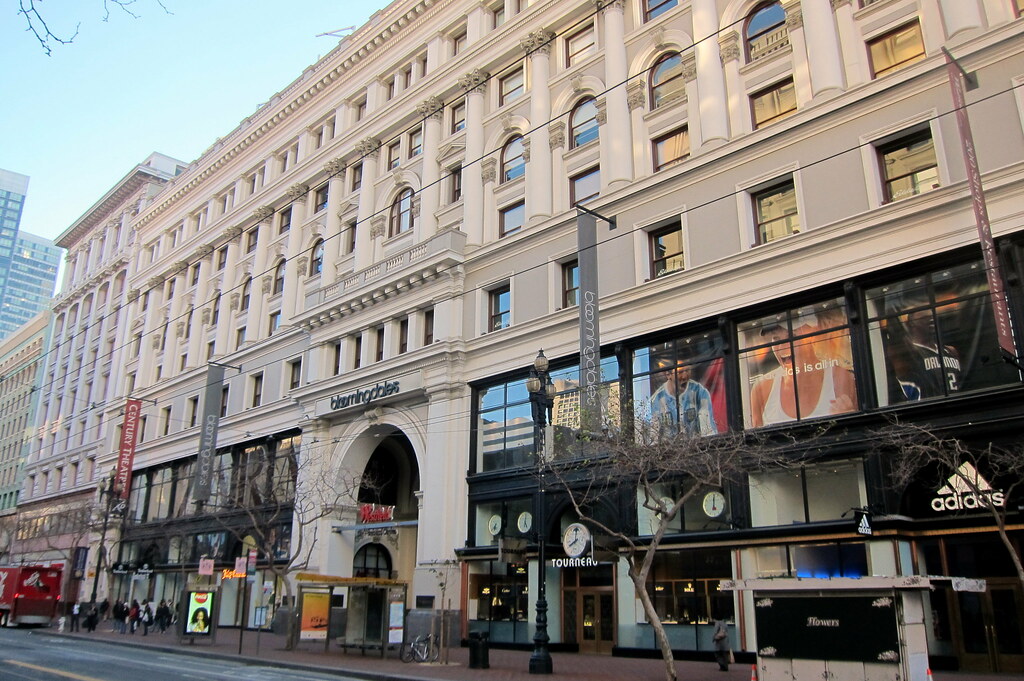Express Inc., a prominent retailer headquartered in Columbus, Ohio, has filed for Chapter 11 bankruptcy protection.
With a network of nearly 530 stores, the company’s decision, announced on Monday, mirrors the widespread difficulties facing the retail industry due to increasing economic pressures.
Express to Close Scores of Stores

In a major restructuring move, Express will shut down about 95 of its stores and all of its UpWest locations, Forbes reports.
The company revealed this in a Monday press release. Details on which specific stores will close remain under wraps for now.
Business As Usual for Customers

Despite the bankruptcy news, Express ensures that business operations continue smoothly.
The company reassures its customers that its merchandise policies remain unchanged, and gift cards and store credits are still currently redeemable, maintaining normal service during these transitional times.
A Closer Look at Express’s Reach

Express isn’t just a familiar name in local malls; it’s a vast enterprise.
Operating 530 locations under the banners of Express, Express Edit, and Express Factory Outlet in the U.S. and Puerto Rico, with additional stores in Mexico and Central America, the brand is a significant player in the retail field.
Beyond the Mall: Express’s Extended Ventures

Express’s retail strategy goes beyond traditional stores.
The company also manages around 60 Guideshop locations and 12 UpWest stores, diversifying its business model to better meet changing consumer needs and market dynamics.
Financial Reinforcements Amidst Turmoil

Facing financial strain, Express has secured crucial funding for its reorganization.
The company shared that it has received a $35 million commitment in new financing from certain existing lenders. This financial injection complements an earlier $49 million aid received from the IRS via the CARES Act.
Strategic Reasons for Bankruptcy

The decision to file for bankruptcy is a calculated strategy to enable a more effective restructuring.
USA Today reports that the company intends to use this process to facilitate the sale of its retail operations to a consortium including WHP Global, Simon Property Group, and Brookfield Properties, aiming for a more sustainable financial structure.
CEO’s Outlook on the Restructuring

Stewart Glendinning, the CEO of Express, has expressed optimism about the company’s future following the restructuring.
He said the possible restructuring will “provide us additional financial resources, better position the business for profitable growth and maximize value for our stakeholders,'” suggesting a hopeful path ahead.
What the Store Closures Mean for Employees

The forthcoming closure of nearly 100 stores casts uncertainty on the fate of many Express employees.
While specific details on the impact on jobs are not yet clear, the changes are expected to be significant for the workforce involved.
Impact on Malls and Local Economies

The closure of Express stores is likely to significantly affect the malls they occupy.
USA Today reports that the reduced footprint of Express could lead to changes in consumer traffic and the overall economic health of these shopping centers.
Changing Dynamics in Retail Competition

Express’s downsizing might reshape the competitive landscape in retail.
With Express retracting, other retailers might seize the chance to expand or be compelled to reevaluate their own strategies in light of similar market pressures.
Looking Ahead for Express

The retail sector and Express customers alike will be watching closely as the company navigates its bankruptcy proceedings.
How Express manages this challenging phase could set examples for recovery strategies in the retail industry and offer insights into the future of retail restructuring.
Overview of the Bankruptcy Process

Chapter 11 bankruptcy allows Express Inc. to continue operations while restructuring its finances. This legal provision aids in reorganizing debts and negotiating with creditors, thereby avoiding the immediate liquidation of assets.
The process is designed to help the company adjust its business model to remain viable in the competitive retail market.
Analysis of Retail Industry Trends

“The shift towards online shopping has significantly impacted physical stores,” says Neil Saunders of GlobalData (via AP). As consumer preferences evolve, retailers like Express must adapt or face declining sales.
This trend essentially underscores the need for Express to enhance its digital presence and offer more unique in-store experiences to attract customers.
The Future of Mall Culture

As traditional retail struggles, malls are likely to transform into centers for entertainment and lifestyle experiences, such as indoor putt-putt golf. This evolution could provide opportunities for innovative retailers to attract new customers.
For Express, the bankruptcy could be a chance to reevaluate and possibly rejuvenate its presence in these evolving spaces.
Express’s Asset Liquidation Strategy

Express’s strategy for asset liquidation will focus on selecting assets that are either underperforming or non-core to its business model.
This approach will help in streamlining operations and reducing overhead, crucial for navigating through bankruptcy and returning to profitability.
Role of Major Stakeholders

The previously mentioned consortium has the potential to provide strategic insights for Express’s transformation.
Their involvement could steer the restructuring process effectively, aiming to stabilize and potentially expand the brand. That’s the hope, at least.
Potential Buyers and Their Strategies

Potential buyers, possibly from private equity or rival retail firms, might look to integrate Express’ assets to diversify their own portfolios.
This acquisition could lead to a reshuffle in the retail market dynamics, potentially enhancing the competitive edge of the buyers.
Effects on Express’s Supply Chain

The restructuring of Express could lead to temporary disruptions in its supply chain.
This might impact suppliers and partners, resulting in adjustments and potentially leading to renegotiations of terms to stabilize the supply flow during and post-bankruptcy.
Economic Impact

The bankruptcy of Express could also have wider economic implications.
With the closure of stores and potential job losses, there could be a ripple effect on the local economies where Express has a relatively stronger presence.
Employee Transition Plans

Express is expected to develop transition plans for employees affected by the store closures, potentially including severance packages, job placement services, and career transition support.
These efforts will be crucial in mitigating the impact on its workforce and aiding in community stability.
Customer Loyalty and Brand Perception

Maintaining customer loyalty will be important for Express as it navigates bankruptcy, which may even serve as a larger reason to assist eventually displaced employees.
The company must ensure transparent communication about the changes and how they affect the customers, aiming to retain their trust and continue attracting them to both online and remaining physical stores.
Regulatory and Legal Considerations

Express will face various regulatory and legal challenges during its bankruptcy process, including negotiating lease terminations and managing creditor relations.
Successful navigation of these issues will be key to the company’s ability to restructure effectively and minimize financial liabilities.
Long-term Projections

Post-bankruptcy, the future of Express depends on its ability to adapt to retail trends and reinvent its business strategy.
If successful, Express could emerge leaner and more focused, potentially even regaining a strong position in the retail market. However, the path will require plenty of careful strategic planning and execution.
